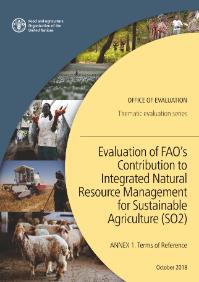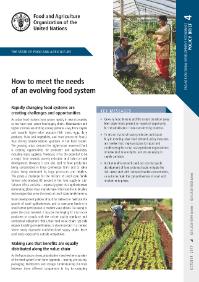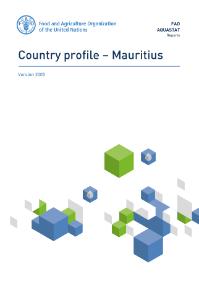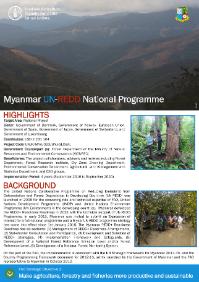Focal point
Location
The Food and Agriculture Organization of the United Nations leads international efforts to defeat hunger. Serving both developed and developing countries, FAO acts as a neutral forum where all nations meet as equals to negotiate agreements and debate policy. FAO is also a source of knowledge and information. We help developing countries and countries in transition modernize and improve agriculture, forestry and fisheries practices and ensure good nutrition for all. Since our founding in 1945, we have focused special attention on developing rural areas, home to 70 percent of the world's poor and hungry people.
Members:
Resources
Displaying 261 - 265 of 5074Evaluation of FAO’s Contribution to Integrated Natural Resource Management for Sustainable Agriculture (SO2) - Annex 1. Terms of Reference
The focus of Strategic Objective 2 stems from FAO’s vision for sustainable agriculture, which is at the heart of the 2030 Agenda. This evaluation assessed FAO’s efforts in promoting integrated approaches for making agriculture, forestry and fisheries more productive and sustainable. These efforts have proven to be highly relevant in countries where agriculture and food systems face urgent sustainability challenges.
Ending extreme poverty in rural areas - Sustaining livelihoods to leave no one behind
Sustainable Development Goal 1, ending poverty in all its forms, everywhere, is the most ambitious goal set by the 2030 Agenda. This Goal includes eradicating extreme poverty in the next 12 years, which will require more focused actions in addition to broad-based interventions. The question is: How can we achieve target 1.1 and overcome the many challenges that lie ahead? By gaining a deeper understanding of poverty, and the characteristics of the extreme rural poor in particular, the right policies can be put in place to reach those most in need.
How to meet the needs of an evolving food system
Rapidly changing food systems are creating both challenges and opportunities. As urban food markets have grown in recent decades, so too have rural–urban food supply chains. The growing urban demand has the potential to be a major force towards poverty reduction and inclusive rural development. This increasing urban demand for food, and especially for higher-value processed food, is creating opportunities for producers and agribusiness, including input suppliers.
Country profile – Mauritius
This country profile describes the state of the water resources and water use, as well as the state of agricultural water management in Mauritius. The aim of this report is to describe the particularities of the country and the problems met in the development of the water resources, and irrigation in particular. Irrigation trends, existing policies and legislation to water use in agriculture, possible treaties and agreements between countries as well as prospects for water management in agriculture are presented, as described in literature.
Myanmar UN-REDD National Programme
The project brief includes information about the details of the project, the background, objective, description and key achievements of the project.
It also mentions about how the project will implement the operations to achieve Sustainable Development Goals of FAO in line with the Strategic Objectives of FAO.Through the project brief, the audience will get clear understanding on how the project operates and what advantages it will bring for the beneficiaries.










